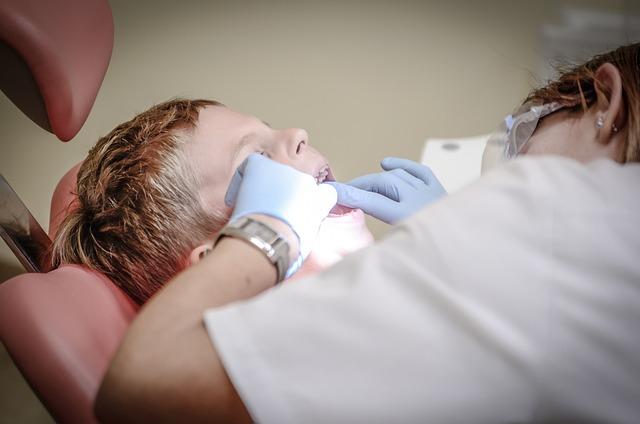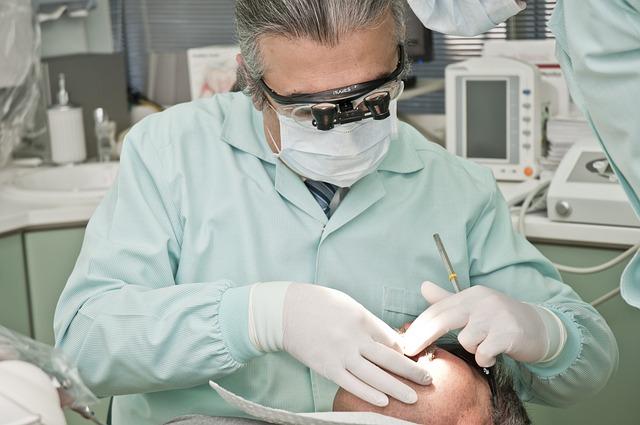Do You Rinse with Salt Water After Tooth Extraction? Dental Care Demystified
Welcome to the world of dental care demystified! If you’ve recently undergone a tooth extraction, you may have heard about the benefits of rinsing with salt water. But does it really work? In this article, we will delve into the topic and provide you with the confident, knowledgeable, and neutral information you need to make an informed decision. Say goodbye to uncertainty as we explore the truth behind rinsing with salt water after tooth extraction. Let’s dive right in!
1. The Benefits of Rinsing with Salt Water After Tooth Extraction: Explained by Dental Experts
After a tooth extraction, it is crucial to follow the proper post-operative care routine to promote healing and prevent complications. One highly recommended practice is rinsing with salt water, which offers several benefits according to dental experts:
- Reduced swelling: Salt water rinses can help reduce swelling and inflammation in the mouth, which is a common side effect after tooth extraction. The salt helps draw out excess fluid and reduce discomfort.
- Antibacterial properties: Salt has natural antibacterial properties that can help prevent infection in the extraction site. Rinsing with salt water can help keep the area clean and minimize the risk of developing an infection.
- Alleviates discomfort: Salt water rinses can provide temporary relief from pain and discomfort after a tooth extraction. The warm water soothes the area and can promote a sense of comfort.
- Promotes healing: Salt water rinses can aid in the healing process by keeping the extraction site clean and free from debris. This can facilitate the formation of a blood clot, which is essential for proper healing.
It is important to note that while salt water rinses offer numerous benefits, they should be used in conjunction with other post-operative care instructions provided by your dentist. It is always advisable to consult with your dental professional for personalized advice based on your specific situation.

2. Step-by-Step Guide: How to Properly Rinse with Salt Water for Optimal Oral Healing
Salt water rinses are a popular and effective method for promoting oral healing. Follow these simple steps to ensure you properly rinse with salt water for optimal results:
1. Choose the right salt: Opt for non-iodized salt, such as sea salt or kosher salt, as iodine can irritate the tissues in your mouth.
2. Measure the salt: Dissolve 1/2 teaspoon of salt in 8 ounces of warm water. This concentration is gentle enough to avoid any discomfort while still maintaining its healing properties.
3. Swish and gargle: Take a mouthful of the salt water solution and swish it around your mouth for about 30 seconds. Make sure to reach all areas, including the gums, cheeks, and tongue. Gargle the solution for an additional 30 seconds to target the back of your throat.
4. Spit it out: After rinsing, spit out the salt water. Avoid swallowing it, as it may cause dehydration or upset your stomach.
5. Repeat as needed: Depending on your oral condition, you may need to rinse with salt water multiple times a day. Consult with your dentist or healthcare provider for specific instructions.
Remember, salt water rinses are not a substitute for proper dental hygiene. Continue to brush and floss regularly, and consult your dentist for any persistent oral health concerns.
3. Understanding the Science Behind Salt Water Rinse: How It Promotes Post-Extraction Recovery
One of the most effective ways to promote post-extraction recovery is through the use of a salt water rinse. This simple yet powerful solution has been used for centuries due to its numerous benefits. By understanding the science behind salt water rinse, we can comprehend why it is so effective in aiding the healing process.
Salt water rinse works by creating a saline environment in the mouth, which helps to cleanse and disinfect the area where the tooth was extracted. This saline solution helps to remove any harmful bacteria or debris that may be lingering in the socket, reducing the risk of infection. Additionally, the salt water rinse helps to reduce inflammation and swelling, providing relief and comfort to the patient.
The science behind salt water rinse lies in its ability to create an isotonic solution. Isotonic solutions have the same concentration of salt as the cells in our bodies, allowing for optimal healing and cellular repair. This balanced environment promotes healthy tissue regeneration, speeding up the recovery process.
To create a salt water rinse, simply dissolve half a teaspoon of salt in eight ounces of warm water. Gently swish the solution around your mouth for about 30 seconds, making sure to reach the extraction site. Spit out the rinse and avoid eating or drinking for at least 30 minutes to allow the solution to take full effect.
In conclusion, understanding the science behind salt water rinse is crucial for promoting post-extraction recovery. Its ability to cleanse, disinfect, reduce inflammation, and create an optimal healing environment makes it an essential part of the recovery process. Incorporating this simple yet powerful solution into your post-extraction routine can greatly enhance your overall healing experience.
4. Unveiling the Truth: Debunking Common Myths About Salt Water Rinse After Tooth Extraction
After undergoing a tooth extraction, many individuals are often confused about the proper care and maintenance required for a speedy recovery. One of the most common misconceptions is the belief that salt water rinses are detrimental to the healing process. However, it’s time to debunk this myth and shed light on the truth.
1. Promotes healing: Contrary to popular belief, rinsing your mouth with salt water after a tooth extraction can actually promote healing. The salt water solution helps to cleanse the area, preventing the buildup of bacteria and reducing the risk of infection. Furthermore, it aids in reducing inflammation and swelling, providing relief and facilitating the healing process.
2. Reduces discomfort: Salt water rinses can effectively alleviate any discomfort or pain associated with tooth extraction. The gentle swishing of the solution helps to soothe the area, providing temporary relief from soreness or sensitivity. It is important to note that the salt water rinse should be done gently to avoid dislodging the blood clot, which is crucial for proper healing.
3. Easy to prepare: Another advantage of salt water rinses is their simplicity. To create the solution, simply dissolve half a teaspoon of salt in eight ounces of warm water. Stir until the salt is completely dissolved, and your rinse is ready to use. It is recommended to use this solution two to three times a day, especially after meals, for optimal results.
Now that we’ve debunked the myth surrounding salt water rinses after tooth extraction, it’s important to note that every individual’s healing process may vary. Therefore, it is always advisable to consult with your dentist or oral surgeon for personalized post-extraction care instructions.

5. The Power of Salt Water: Exploring Its Antimicrobial Properties for Wound Healing
Salt water has long been recognized for its antimicrobial properties, making it a valuable resource in wound healing. Its effectiveness lies in its ability to create an environment that is inhospitable to bacteria, viruses, and fungi. When applied to wounds, salt water helps to cleanse the area and prevent infection, ultimately promoting faster healing.
Here are some key benefits of using salt water for wound healing:
- Kills bacteria: Salt water works by dehydrating bacteria, which inhibits their growth and kills them. This helps to prevent the spread of infection and reduces the risk of complications.
- Reduces inflammation: The salt in the water can help to reduce inflammation and swelling around the wound, providing relief and creating a more conducive environment for healing.
- Speeds up healing: By cleansing the wound and removing debris, salt water helps to accelerate the natural healing process. It also promotes the formation of healthy granulation tissue, which is crucial for wound closure.
It is important to note that while salt water can be beneficial for wound healing, it should not replace professional medical care. It is always advisable to consult a healthcare professional for proper wound assessment and treatment. However, incorporating salt water as part of a wound care regimen can offer additional benefits and aid in the healing process.

6. A Natural Solution: Why Salt Water Rinse is a Safe and Effective Choice for Dental Care
Using a salt water rinse as a part of your dental care routine can provide a safe and effective solution for maintaining oral hygiene. Here’s why:
Natural and chemical-free: Salt water is a natural substance that does not contain any harmful chemicals or additives. By using a salt water rinse, you can avoid exposing your mouth to potentially irritating or harmful ingredients found in some commercial mouthwashes.
Antibacterial properties: Salt has natural antibacterial properties that can help kill bacteria in your mouth. This can be particularly beneficial for individuals who are prone to gum infections or have sensitive gums. The salt water rinse can help reduce inflammation and promote healing.
Easy to make and use: Making a salt water rinse is simple and cost-effective. All you need is some warm water and salt. Mix a teaspoon of salt in a glass of warm water, stir until dissolved, and your rinse is ready to use. Gargle with the solution for 30 seconds to a minute, ensuring it reaches all areas of your mouth, and then spit it out. Repeat this process once or twice a day, depending on your needs.
By incorporating a salt water rinse into your dental care routine, you can harness the natural benefits of salt to maintain oral health. It’s a safe, effective, and easy solution that can help keep your mouth clean and fresh.
7. Enhancing Comfort and Minimizing Infection: The Role of Salt Water Rinse in Tooth Extraction Aftercare
After undergoing a tooth extraction, proper aftercare is crucial to ensure a smooth and speedy recovery. One highly effective and natural method to enhance comfort and minimize the risk of infection is through salt water rinses. This simple yet powerful solution can provide numerous benefits in the post-extraction healing process.
Here are some key advantages of including salt water rinses in your tooth extraction aftercare routine:
1. Promotes healing: Salt water rinses act as a gentle antiseptic that helps remove bacteria and debris from the extraction site. This promotes a clean environment for the wound to heal, reducing the risk of infection and accelerating the recovery process.
2. Reduces discomfort: The warm salt water solution has soothing properties that can alleviate pain and swelling after a tooth extraction. It helps in reducing inflammation and provides a comforting sensation, allowing you to feel more at ease during the healing period.
3. Easy and cost-effective: Salt water rinses are affordable and require minimal effort to prepare. You can easily make a saline solution using common household salt and warm water. It is a convenient and accessible option for anyone looking to enhance their tooth extraction aftercare without any additional expenses.
To perform a salt water rinse, simply dissolve half a teaspoon of salt in a cup of warm water. Gently swish the solution around your mouth for 30 seconds, focusing on the extraction site. Repeat this process 2-3 times a day, especially after meals, for optimal results.
Remember, while salt water rinses can greatly enhance comfort and minimize infection risks, it is essential to follow your dentist’s instructions and attend all scheduled follow-up appointments. This will ensure comprehensive aftercare and allow your dentist to monitor your healing progress closely.
8. Expert Recommendations: When and How Often to Rinse with Salt Water Following Tooth Extraction
After a tooth extraction, rinsing with salt water can promote healing and reduce the risk of infection. However, it is important to follow expert recommendations on when and how often to perform this procedure. Here are some guidelines to ensure proper care:
- Timing: Begin rinsing with salt water 24 hours after the extraction. This allows the initial clot to form and reduces the chances of dislodging it.
- Frequency: Rinse with salt water 2-3 times a day, especially after meals, for the first week following the extraction. This helps keep the socket clean and prevents bacteria buildup.
- Solution: Prepare a salt water solution by dissolving half a teaspoon of salt in 8 ounces of warm water. Stir until the salt is completely dissolved.
- Technique: Take a sip of the salt water solution and gently swish it around your mouth for 30 seconds. Be careful not to spit forcefully, as this can disturb the blood clot and delay healing.
It is worth noting that individual cases may vary, so it is always best to consult your dentist or oral surgeon for personalized advice. Following these expert recommendations will help ensure a smooth recovery and minimize any complications after a tooth extraction.
9. Tales from the Chair: Real Patients Share Their Experiences with Salt Water Rinse After Tooth Extraction
After a tooth extraction, proper care is crucial to ensure a smooth and speedy recovery. One technique that many dentists recommend is a salt water rinse. This simple yet effective method involves swishing a salt water solution in your mouth to help cleanse the extraction site and promote healing. To shed some light on this practice, we reached out to a few real patients who have undergone tooth extraction and used salt water rinse as part of their aftercare routine. Here are their experiences:
- Reduced swelling and discomfort: Several patients reported that using a salt water rinse after tooth extraction helped reduce swelling and discomfort in the days following the procedure. The gentle saline solution seemed to provide a soothing effect, making the recovery process more manageable.
- Improved healing: Many patients noticed that salt water rinse accelerated the healing process. They observed that the extraction site appeared cleaner and healthier, with less chance of infection. The antibacterial properties of salt water are believed to play a significant role in preventing bacteria buildup and promoting faster healing.
- Easy to prepare and use: All patients agreed that salt water rinse is incredibly convenient and easy to incorporate into their daily routine. Simply mixing half a teaspoon of salt in a cup of warm water creates a saline solution ready for use. Swishing the mixture gently in the mouth for about 30 seconds and then spitting it out is all it takes to reap the benefits.
Based on these patients’ experiences, it’s evident that salt water rinse can be a valuable addition to post-tooth extraction aftercare. However, it’s important to note that individual results may vary, and it’s always best to consult your dentist for personalized advice and instructions.
10. Empowering Patients: Understanding the Importance of Post-Extraction Care, Including Salt Water Rinse
After a tooth extraction, it is crucial to understand the significance of post-extraction care. One important aspect of this care is the use of a salt water rinse. This simple yet effective solution can help in promoting healing and preventing infection.
Why is a salt water rinse important? Here are a few key reasons:
- Reducing bacteria: Salt water has natural antibacterial properties that can help kill harmful bacteria in the mouth. Rinsing with salt water after an extraction can prevent infection and promote faster healing.
- Alleviating discomfort: Salt water can also provide temporary relief from any discomfort or pain in the extraction site. It acts as a natural disinfectant and soothes the area, making it easier for patients to manage their post-extraction pain.
- Removing debris: The gentle swishing action of a salt water rinse can help dislodge any food particles or debris that may be stuck in the extraction site. This helps keep the area clean and reduces the risk of infection.
It is important to note that a salt water rinse should not replace proper oral hygiene practices. Patients should continue to brush their teeth gently and avoid disturbing the extraction site while it heals. If any concerns or complications arise, it is always best to consult with a dentist for personalized advice and guidance.
Frequently Asked Questions
Q: Why is rinsing with salt water recommended after a tooth extraction?
A: Rinsing with salt water after a tooth extraction is recommended because it helps prevent infection and promotes healing. The gentle saltwater solution acts as a natural disinfectant by reducing the number of bacteria in the mouth, which minimizes the risk of post-operative complications.
Q: How does salt water aid in preventing infection?
A: Salt has been used for centuries as a natural antiseptic due to its ability to draw out moisture from harmful bacteria and reduce their numbers. By rinsing with salt water, you create an environment that is less favorable for bacteria to thrive, lowering the chances of developing an infection at the extraction site.
Q: What is the proper way to rinse with salt water?
A: To rinse with salt water, dissolve half a teaspoon of salt in a cup of warm water. Gently swish the solution around your mouth, making sure it reaches the extraction site without being too forceful. The goal is to keep the area clean and disinfected, not to create any discomfort or pain.
Q: How frequently should salt water rinses be done?
A: It is generally recommended to rinse with salt water after every meal and at least three to four times a day, especially during the first few days following a tooth extraction. Maintaining a consistent rinsing schedule helps promote healing and ensures the extraction site remains clean throughout the recovery process.
Q: Are there any side effects associated with rinsing with salt water?
A: When done correctly, rinsing with salt water is safe and generally well-tolerated. However, some individuals may experience a mild burning or stinging sensation, especially if the water is too hot or if the extraction site is still sensitive. If you encounter any persistent discomfort or unusual symptoms, it’s advisable to consult with your dentist.
Q: Can salt water rinses replace regular brushing and flossing?
A: Salt water rinses are a supportive measure rather than a substitute for regular oral hygiene practices. While rinsing with salt water can aid in disinfection, it cannot remove plaque or food particles that brushing and flossing effectively do. Therefore, it is crucial to continue maintaining your usual oral care routine alongside salt water rinses.
Q: How long should salt water rinses be continued after a tooth extraction?
A: The duration of salt water rinses after a tooth extraction can vary depending on the individual and the specific instructions given by your dentist. In most cases, rinsing with salt water is recommended for about one to two weeks following the extraction. However, it’s essential to follow your dentist’s guidance for the best results.
Q: Are there any alternatives to salt water rinses?
A: Yes, there are alternatives to salt water rinses that can be equally effective in promoting healing after a tooth extraction. Your dentist may recommend using a medicated oral rinse or prescribe an antimicrobial mouthwash. These alternatives can provide additional benefits and may be particularly useful for patients with specific oral health conditions or compromised immune systems.
Q: Is it normal to experience some discomfort after rinsing with salt water?
A: It is not uncommon to feel a slight discomfort or taste saltiness in your mouth after rinsing with salt water. However, any significant pain or prolonged discomfort should be reported to your dentist, as it could indicate an underlying issue or infection that requires further evaluation and treatment.
Q: Can salt water rinses be used for other dental procedures or conditions?
A: Absolutely! Salt water rinses can be beneficial for various dental procedures or conditions, such as wisdom tooth extraction, gum infections, canker sores, and general oral hygiene maintenance. However, it’s always best to consult with your dentist or healthcare provider before using salt water rinses for specific dental concerns.
In Summary
In conclusion, the practice of rinsing with salt water after tooth extraction is a widely recommended and effective method for promoting healing and preventing infection. By creating a saline solution, you can cleanse the area, reduce swelling, and soothe any discomfort. It is important to remember to use warm water and dissolve the appropriate amount of salt to ensure optimal results.
Furthermore, maintaining proper oral hygiene throughout the healing process is crucial. Brushing your teeth gently, avoiding the extraction site, and using a soft-bristle toothbrush can aid in preventing bacteria buildup. Additionally, sticking to a soft diet and avoiding hard, chewy foods can help protect the extraction site and facilitate a smooth recovery.
Although rinsing with salt water can be beneficial, it is essential to follow the instructions provided by your dentist or oral surgeon. They may have specific recommendations tailored to your individual case. If you experience any unusual symptoms or complications, it is always best to consult with your dental professional for further guidance.
Ultimately, understanding the importance of post-extraction care and taking necessary precautions will contribute to a successful recovery. By demystifying dental care practices, we hope to empower individuals to make informed decisions about their oral health and ensure a positive and efficient healing process.






